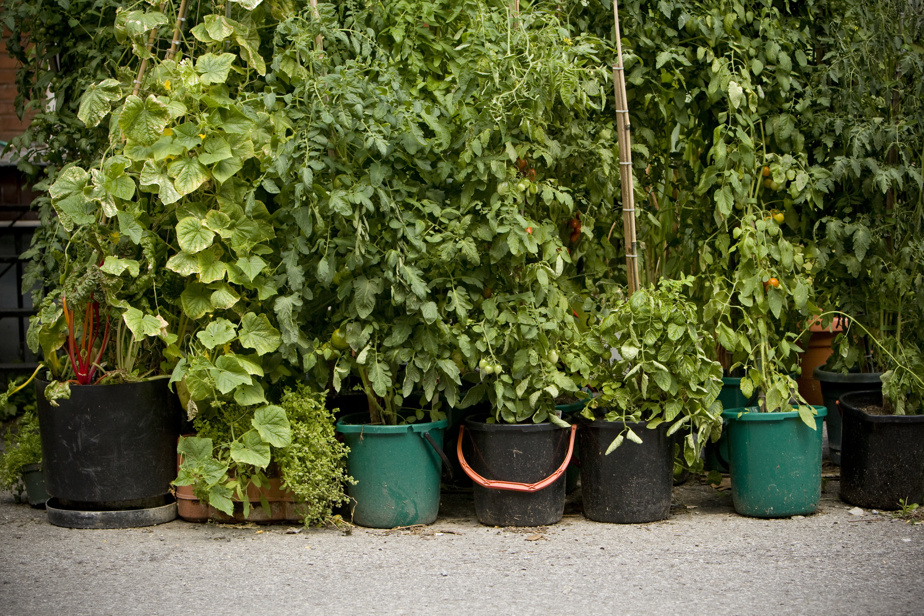More than one million Canadian families want to know more about gardening in 2022, a number that adds to the number of gardeners turning during and before the pandemic, reveals a survey by Dalhousie University and Angus Reid Company, whose findings were released Tuesday. . Gardening has never been so popular, the report says, in Canada.
Posted yesterday at 10:00 am
At the start of the epidemic and in full containment, the Laboratory of Analytical Sciences in Agri-Food at Dalhousie University and Angus Reid Company surveyed Canadian residents about their gardening habits. Two years later and in a context where grocery prices are skyrocketing, the partners again took an interest, this time emphasizing the ways Canadians garden and what motivates them to grow food at home.
It shows that more than half of Canadians (52%, up from 51% in 2020) already grow fruits, vegetables or herbs at home, while 8% plan to do so this year. Of the number of new gardeners, 85% live in cities and 46% are under the age of 35. These numbers reflect the situation in Quebec, where 53% of the population maintains some form of botanical gardens – 6% started doing so during the pandemic – and where 8% would like to do so for the first time this season. This percentage ranks second in Canada in terms of the number of new enthusiasts, tied to Ontario and behind the Atlantic provinces.
“Age is a special factor this year,” notes Sylvain Charlebois, director of the Laboratory of Analytical Sciences in Agri-Food.
More and more young people intend to learn horticulture and they represent nearly half of new gardeners in Quebec.
Sylvain Charlebois, Director of the Analytical Sciences Laboratory at Agrifood
Another data was presented more insistently two years later: gardening in the city. “People realize that you don’t need a flower bed or a backyard to garden. You can do it on your balcony and indoors. Gardening is affordable.”
Gardening for fun and painting
Canadians love gardens. This is also the reason given by 74% of the population who engage in this activity as an enjoyable pastime. Other arguments add to this motivating factor. For half of the respondents (49%), it was related to the superior quality of home-grown food, while concern for economy (41%) and fear of food shortages (12%) were also indicated.
“If food insecurity in 2020 is a strong case for encouraging people to grow their own food at home, this consideration is redirected in part to concerns about food affordability and freshness,” notes the lab director in This New Pulse Outcome with Canadians.
Lack of space (55%), time (39%) or knowledge of horticultural techniques (27%) remains a barrier for 55% of those who do not practice gardening. Only 5% of respondents indicated a lack of interest. Even if the number of gardeners remains roughly the same in 2020—some have given up the road, others have joined the movement—the numbers in this new report show that the gardening craze is “at least intense and more committed in the country than it was two years ago,” As says the Laboratory of Analytical Sciences in Agri-Food.
It is clear that COVID-19 has given a new impetus to gardening, even two years after the start of the epidemic, assures Sylvain Charlebois. “The number of gardeners has only increased by 1% in the last two years. We don’t see this momentum in terms as much as we see in the quality of investment in this business. The 51% of gardeners before COVID-19 may not have been as strong as the 52% today, which includes Many followers and people who believe in gardening, want to do it and do it.”
It remains to be seen if the enthusiasm for gardening will remain intense. Sylvain Charlebois has no doubts about that. “However, the rate of gardening in Canada has gone up, and people who are involved in gardening are slowly becoming insiders who will continue to be gardening for a while,” he says. We learned gardening. The most important part of home gardening is learning about food production and enjoying it. It is not only a way to allow the countryside to get close to us, but it is also a way to build bridges between the rural world and the urban world. »
The survey of 1,501 Canadians was conducted in partnership between Dalhousie University and Angus Reid during April 2022, with a margin of error of +/- 3.1%, 19 times out of 20.

“Subtly charming problem solver. Extreme tv enthusiast. Web scholar. Evil beer expert. Music nerd. Food junkie.”


